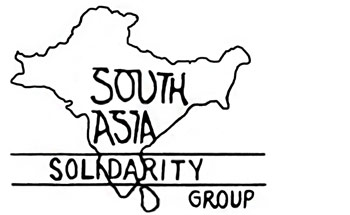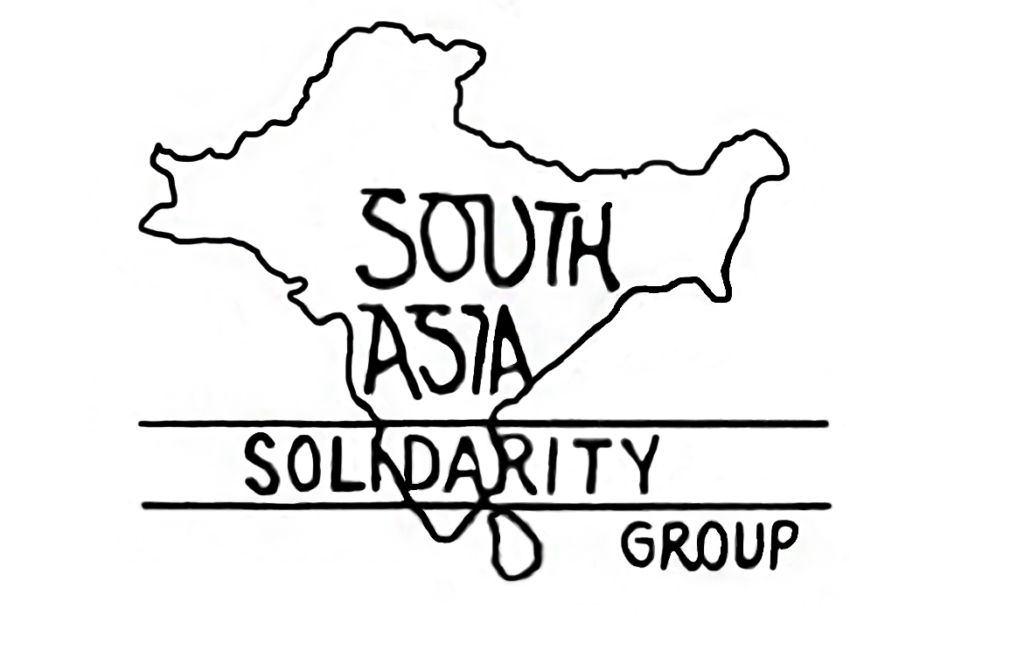- August 4, 2011
- Posted by: admin
- Category: News
Kalpana Wilson September 2008
More than 3,000 workers, many of them women, employed by Indian car parts manufacturer Pricol in Coimbatore, Tamil Nadu are waging a militant and sustained struggle for basic rights and decent wages and conditions, confronting a virulently anti-union corporate employer. Since early 2007 when permanent, ancilliary and contract workers formed a union affiliated to revolutionary left trade union federation AICCTU which the majority of the workforce joined, the Pricol workers have faced victimisation of union activists, violence from the police and management, and daily harassment at work. But their dynamic and determined resistance has galvanised other workers and the entire local community and sent a clear signal to other employers in the area. Last week hundreds of workers blockaded the factory gates for four days in protest at the ‘lockout’ of 171 workers. This succeeded in forcing the management to reduce the number of workers to be locked out and give an undertaking that more workers would not be victimised. However, the basic demands of the Pricol workers are still to be met and the struggle continues.
Background
Pricol Ltd of Coimbatore manufactures speedometers, fuel gauge meters, disk breaks, speedo cables and other accessories. It is owned by industrialist Vijay Mohan and is a joint venture with the Japanese Denso Corporation. It supplies parts to leading automobile manufacturers in India such Ashok Leyland, Bajaj, Hero Honda, Maruti, Hyundai, Ford, and General Motors (all of which are owned by or collaborations with foreign multinationals) as well as to factories in Italy, Germany, and Japan. It also supplies parts for tanks for the Indian Army. Pricol owns a subsidiary in Indonesia, and in the context of the dispute in Coimbatore, is planning to set up a unit in Iran.
Pricol employs over 5,000 workers including nearly 2,000 women workers in its main plants in Coimbatore and in more than 15 ancillary units known as Satellite Vendor Units (SVUs). Workers in SVUs, many of whom are women, have in many cases worked for 20-30 years without their employment being regularised. Workers on the roll of SVUs are also deployed in the main plants, but are not entitled to the pay and other benefits of the permanent workers. Permanent workers of the main plants are also deployed in the SVUs as a disciplinary measure. In addition, there are ‘Other Contract Labourers’ (OCLs) working in all Pricol’s plants. Workers of SVUs and OCLs outnumber permanent workers. So the fact that the newly formed union decided from the outset to represent SVU and contract workers as well as permanent workers (unlike the existing unions at Pricol) was crucial to its ability to challenge the management. This was made clear by the fact that soon after the struggle at Pricol started, manufacturers’ associations of Coimbatore issued a joint statement condemning these ‘new methods’ (i.e. permanent and contract and ancillary workers uniting) which they claimed would be damaging for industry and employment opportunities coming into Coimbatore.
While Pricol’s official website in typical corporate language describes it employees as ‘partners in the value chain’, the reality is of low wages, appalling conditions and acute exploitation.
Working hours are supposed to be eight hours a day, but all workers are forced to do four hours compulsory overtime every day, even if they are sick. For twelve hours each day, both women and men workers have to stand up continuously in order to maximise production. Women workers attending a mass meeting on 9 August 2008 expressed their anger about the fact that even when they were pregnant, and when they were unwell during menstruation, they were not spared this ordeal. This enforced standing has been linked to the fact that approximately 30% of women workers have had to undergo hysterectomies. Accidents in which workers have lost fingers have occurred frequently, but the management has tried to ascribe this to the ‘carelessness’ of the workers. Although the factory is supposed to come under the Employees State Insurance scheme, the workers explained that the ESI officials who inspect the factory collude with the management in their blatant violations of health and safety norms.
The workers describe the approach of the management, and particularly the managing director, as ‘feudal’. They are subject to humiliation in the name of ‘discipline’. For example, women workers have been issued with ‘chargesheets’ for going to the toilet during working time, or for eating a biscuit in order to fend off dizziness and exhaustion. If productivity declines at all they are abused by the management. Applications for sick leave are routinely rejected – workers are told they have to give 24 hours notice!
The workers are also struggling for an improvement in wages and an end to the deductions made by management without workers’ consent. For example, the management has carried out activities such as building a temple, a bridge, and a burial ground, and cleaning up a river they have polluted, using funds deducted from the workers salaries. The workers were also forced to buy shares of a company started by the management for Rs.10, 000 and the sum was deducted from the salary and bonus of the workers without their consent.
The struggle so far
The management responded to the formation of the union and the workers’ demands by transferring six of the leading activists of the union to Pricol’s Uttaranchal plant more than a thousand miles away in North India. This was the trigger for a massive strike by both permanent and contract workers. A series of militant mass actions followed including a road block on March 9 2008 in which hundreds of women lay down in the road and refused to move for 19 hours. On April 3 2007, the workers occupied the factory and the police were called by the management to force them out. The workers resisted and in the process four of the women workers poured petrol over themselves and threatened to set themselves alight, forcing the police to withdraw. Subsequently, the management brought in scab labour and instigated a fight in which they used heated oil and chilli powder to attack the unionised workers. 26 union members were jailed for nearly 40 days for their part in resisting this.
The union is also battling in court, and a recent ruling by the Supreme Court has ordered that as an ‘interim relief’ measure 62 union members sacked in the course of the struggle should be reinstated. The management responded by transferring 40 of these workers to a unit 35 km away, in the hope that the distance and the transport costs would prevent them from attending work giving the management a pretext to sack them. The workers were determined to foil this plan, and so the union has hired a bus in which these workers travel to work together every day – often watching videos of the highlights of their movement on the way!
The Pricol struggle has had a tremendous impact on workers’ resistance in the area. Women workers in particular have been at the heart of mass mobilisations where their family members, friends and whole communities have come out on demonstrations such as a mass rally on 1 May this year. In February, Pricol workers collected nearly 65,000 signatures for Amendment of the Trade Union Recognition Act as part of an AICCTU campaign. Employers too are taking note: when the management in another factory in Coimbatore with very low wages and poor conditions heard that the workers were discussing forming an AICCTU union, they decided to offer a pay rise immediately!
Meawhile the Pricol workers are determined to continue the struggle until their demands are met: in the words of a group of women workers who have been at the forefront of the resistance, ‘this struggle has made us so much more independent and assertive. We will not give up now whatever happens – we will fight back and win!’
For more information, or to send a message of solidarity to the Pricol workers, please contact S. Kumaraswami, President, All-India Central Council of Trade Unions at
aicctutn@yahoo.com or aicctutn@gmail.com


